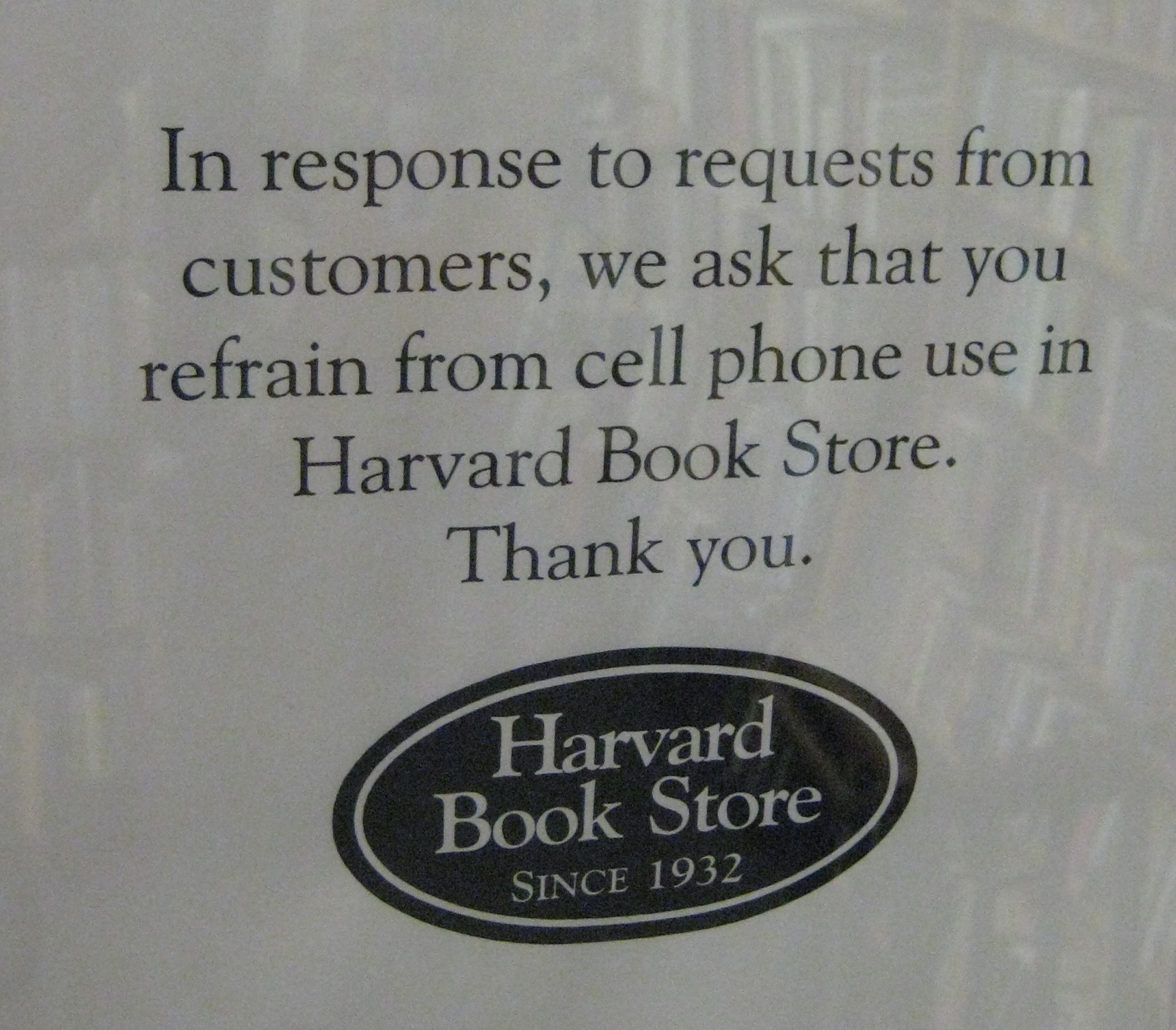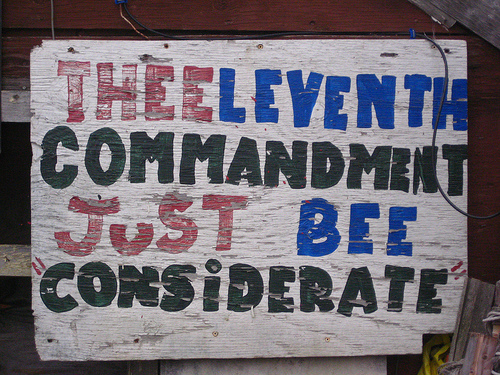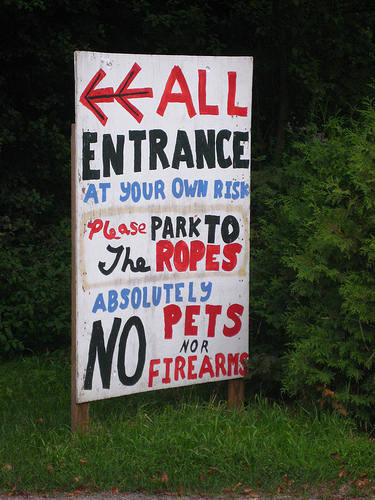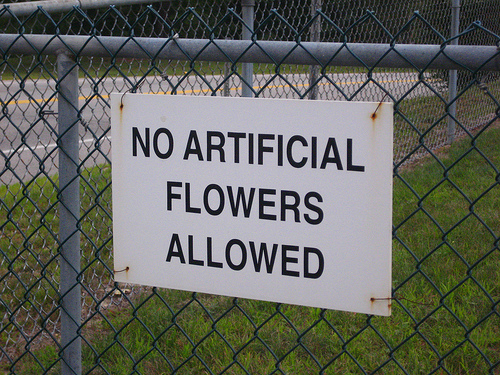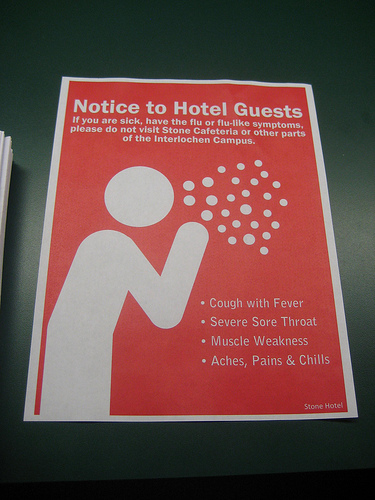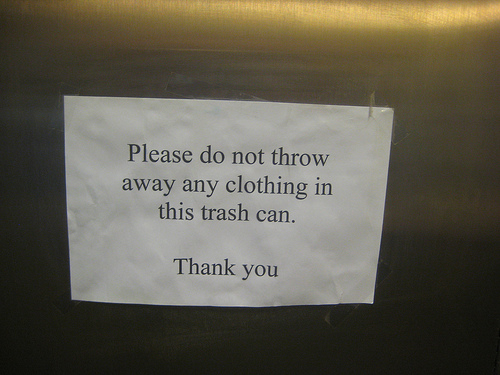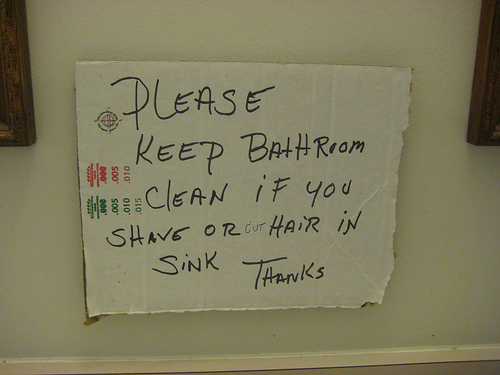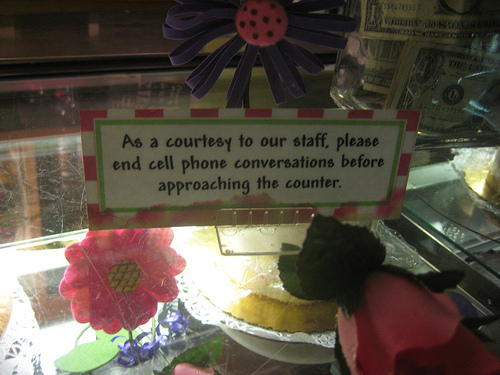Almost without exception, anyone in the professional world now needs to be adept at participating in Virtual Meetings Made Possible by Technology, usually in the form of a teleconference or a webinar. Teleconferences, of course, take place via a telephone. Webinars, a comparatively new phenomenon, utilize both telephones and the computers of participants. Webinars allow video of participants in front of their computers, and also the ability to share documents and images on one's computer screen. These are very useful and helpful tools to have when everyone can't be around the same conference table - but only so long as a participant's inability doesn't jeopardize the time, resources (and hearing) of the others. So Etiquetteer wants to put forward some Gentle Suggestions about participating with Perfect Propriety in a teleconference or webinar:
- R.s.v.p. promptly. Login information may only be sent to those who respond that they are going to participate.
- Verify the arrangements. The day before the call, check that you have the correct dial-in/login information. Yes, the day before. the organizer certainly can't respond to your email or voicemail after the call has begun, and may not be able to even five minutes beforehand.
- Schedule yourself honestly. If you're with your children at the zoo, in a bar waiting for a birthday party to start, in the doctor's waiting room, or - worst of all - operating a motor vehicle, you shouldn't be on a conference call. Not only is the background noise where you are impeding the acoustics of the call for everyone, your vocal participation is disturbing those around you. You show respect for other participants and for the agenda by being sure you're in a quiet space where you can participate fully without disturbing others.
- Arrive early. Everyone's been on a call where the leader has had to repeat the first five or ten minutes for late arrivals. Plan to call in two minutes before the designated start time so that the content of the meeting can begin promptly. That makes a more efficient use of the time of all participants.
- Know the technology. If you're unfamiliar with the technology being used - and Etiquetteer knows you don't when you call to ask for parking at the meeting - become familiar with it before the day of the call. Ask the organizer whether or not your available technology can accommodate the technology being used, and find out specifically what you need to do to get on the call with no disruption. (Good webinar organizers send instructions in advance, but not all participants make a point of reviewing beforehand.)
- Know your mute button. Background noise where you are is magnified on a conference call, and has the power to drown out the words of other participants. If you aren't speaking, mute your phone. Unmute when you wish to speak.
- Start every sentence with your name. Not everyone will recognize your voice.
- At the end of the call, if you want to have a private conversation with another participant, hang up and call that person. The organizer can't be expected to keep the line open for you.
Today is Twelfth Night, the final day of Christmas, and therefore the last day on which Etiquetteer will allow Christmas to be sent with Perfect Propriety. Imagine how delighted Etiquetteer was to receive in the mail today a Christmas card from friends with the inscription "You said this would not be too late!" Indeed, it was not, and Etiquetteer was deeply touched to have been so remembered.








